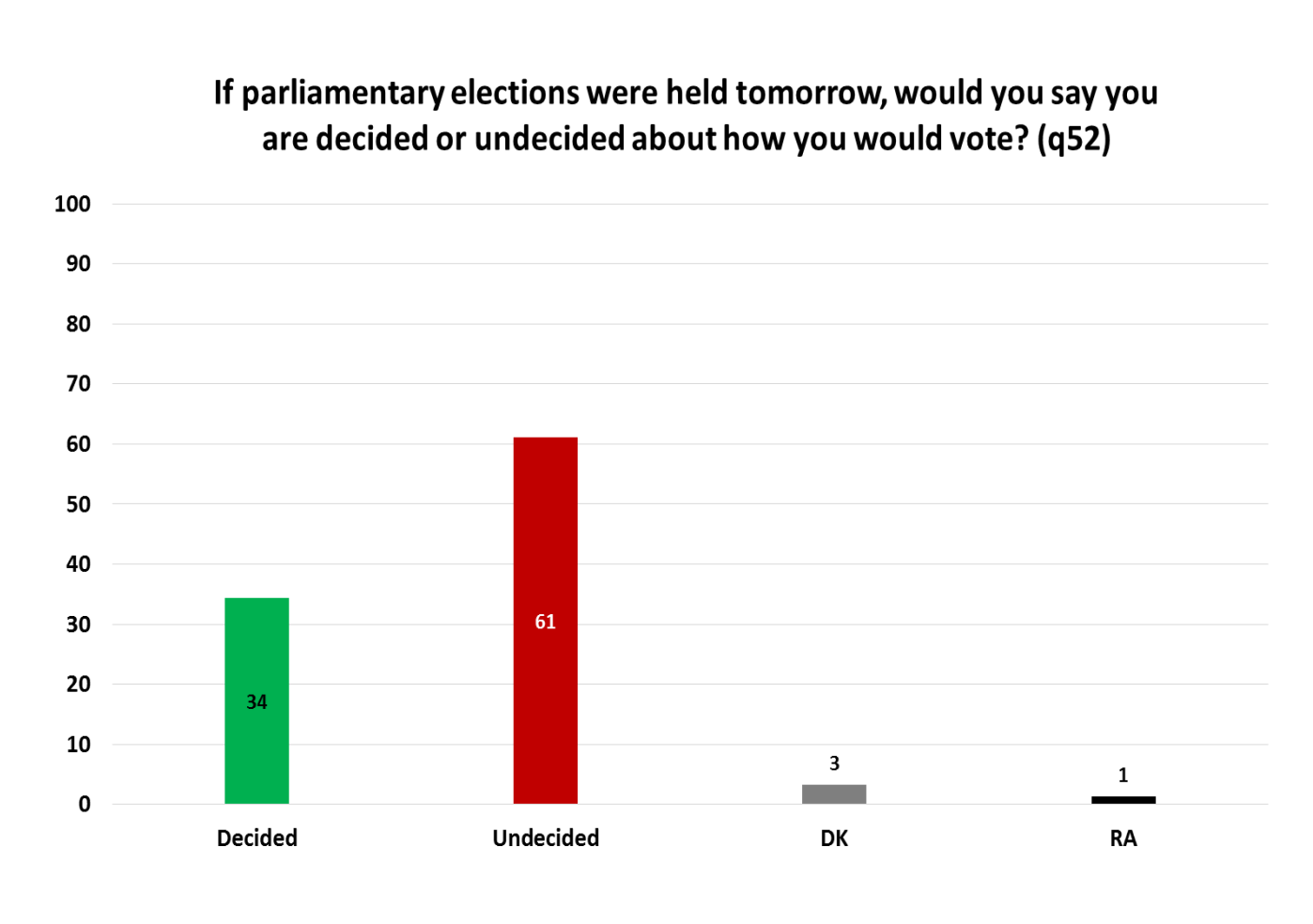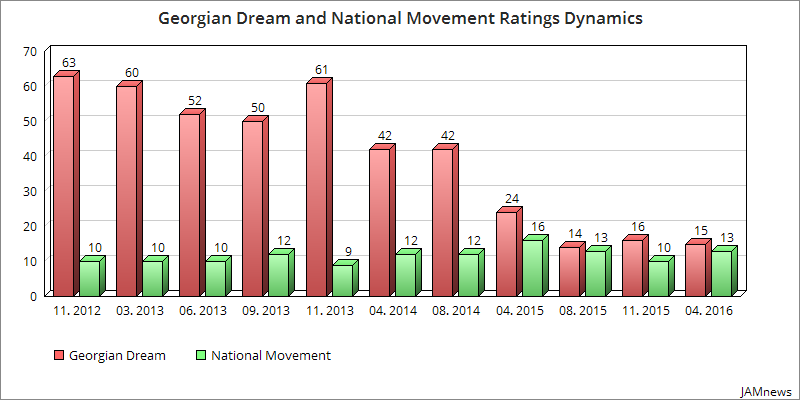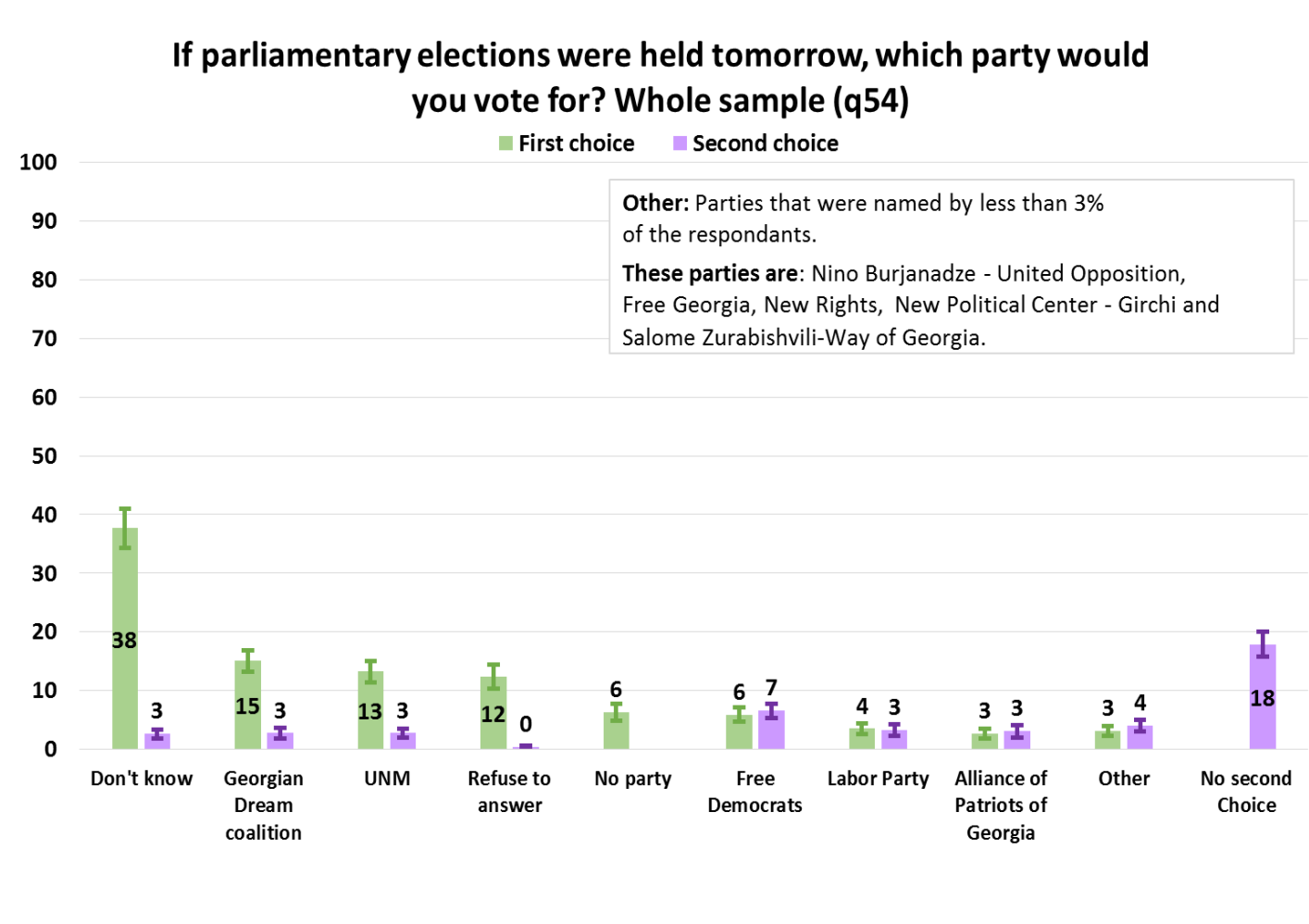Whom will Georgia elect?
The U.S. National Democratic Institute (NDI) has published political ratings 5 months ahead of the parliamentary elections in the country.
The main tendencies, revealed in the survey:
The Answer “I don’t know Prevails
Parliamentary elections are scheduled for October 8. However, it turns out that 61 percent of respondents have not decided yet whom they are going to vote for. The electorate has obviously distanced itself from political parties and shows distrust in the political process, in general. For instance, when asked, which party has the closest ideology to yours, 29% of respondents said that none of them did. None of the parties have received high rating in regards to this question. Hence the conclusion, there will be a fierce pre-election struggle for gaining undecided and nihilist electorate’s votes.

Squandered Trust
It seems that the ruling party cannot increase its rating which so dramatically dropped in early 2015. Only 15% of respondents, interviewed by the NDI, said if there were to be elections the following day, they would circle the ruling “Georgian Dream’s circle. Such a rating 5 months ahead of elections should have the government scratching their heads. Whereas just three and a half years ago, in November of 2012, the Georgian Dream, which had then come to power, enjoyed 63% of the vote. The main question is: Will Ivanishvili’s team manage to regain its squandered trust before the elections? It is noteworthy that five entities within the “Georgian Dream coalition will presumably run independently, and it is not clear yet what impact the Georgian Dream coalition’s collapse will have on the “Georgian Dream’s” pre-election chances.
Stable Electorate
Another interesting tendency was observed: a drop of the government’s rating has no impact on the opposition’s rating. According to the survey, if parliamentary elections were to be held the next day, 13% of respondents would vote for the opposition, “National Movement”. The “National Movement’s” rating, by itself, is an interesting phenomenon-the party’s rating has been stably fluctuating between 10-15% for four years already. The electorate seems to be discontent with the government, but neither is it positive about the opposition. In fact, the “National Movement” has stable and guaranteed supporters, though it cannot yet manage more-to win the hearts of voters offended with the government.

Third Party
According to the NDI survey, another party, Free Democrats, has managed to surpass the 5% threshold. When asked which party they would vote for if there were parliamentary elections the next day, 6% of respondents named the Free Democrats. In the previous survey, conducted in November 2015, former Defense Minister, Irakli Alasania’s team was named by 9% of respondents. This party has recently become a target of open attacks–one of its leaders has been physically abused, whereas another one’s private life and secret records have been made public.

Is Russia our friend?
It is also worthy of note that none of the parties that show loyalty towards Russia and are characterized by critical attitude towards the West and NATO, have more than a 3% rating.
What does Bidzina Ivanishvili have to do with all this?
The opposition points its finger at Ivanishvili when talking about the problems discussed during the televised debates and likewise, this is how government officials respond to this question.
However, it turns out that it’s not only the opposition who conceives Georgia’s ex-Prime Minister as being an informal ruler of the country. As it is pointed out in the NDI survey, 66% of respondents believe that Ivanishvili still makes decisions on government’s affairs. Only 15% of those surveyed believe that, following his resignation, he no longer participates in politics. Thus, based on the opinion of 56% of respondents, it would be good if ex-Premier no longer participated in the decision-making process.

Which politician do you like most?
The respondents don’t seem to be very enthusiastic when answering this question either, since “I don’t know is the most prevelant answer.
The top three most well-liked politicians are the opposition representatives: David Bakradze (15%); Irakli Alasania (7%) and Georgian Labor Party leader, Shalva Natelashvili (6%). Only 5% of those surveyed like the incumbent Prime Minister of Georgia.
The most interesting of note are the ratings of the two prominent leaders of Georgian politics in recent years, the ex-Premier and ex-President. Only 4% of those surveyed say they like Bidzina Ivanishvili; whereas 2% like Mikhail Saakashvili.
Published:13.04.2016



















